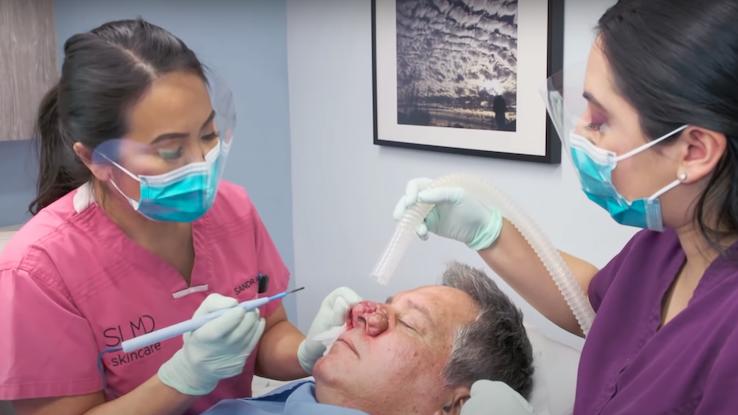
You know they’re supposed to be gross, horrifying and revolting — but somehow, you just can’t look away. Watching pimple popping videos is a guilty pleasure that millions of people enjoy, including the devoted followers of Dr. Pimple Popper, a.k.a. Dr. Sandra Lee, a board-certified dermatologist with tons of viral videos and a popular television show about — as you might expect — popping pimples and performing other fascinating skin extractions.
At the heart of it, those who tune in to Dr. Lee’s show, along with the myriad other popping videos on YouTube and elsewhere online, get a deep satisfaction out of the pimple popping process. But why do people find this type of content so fascinating? It turns out there are four surprising psychological reasons why so many of us eagerly await our next popping fix.
Our Fascination Is Actually a Biological Reaction
Interestingly, our fascination with seeing Dr. Lee and others pop pimples or slice into cysts stems from an evolutionary mechanism to protect us. Humans naturally have a fascination with all things gross because it’s wired into our DNA. Through the eons, as people evolved, so did our disgust response. This is the emotional reaction that keeps you instinctively flinching away from that bowl of macaroni salad that’s been left out in the sun too long at the picnic. It’s a biological impulse that helps keep humans away from various hazards that could threaten their health, wellness and survival.
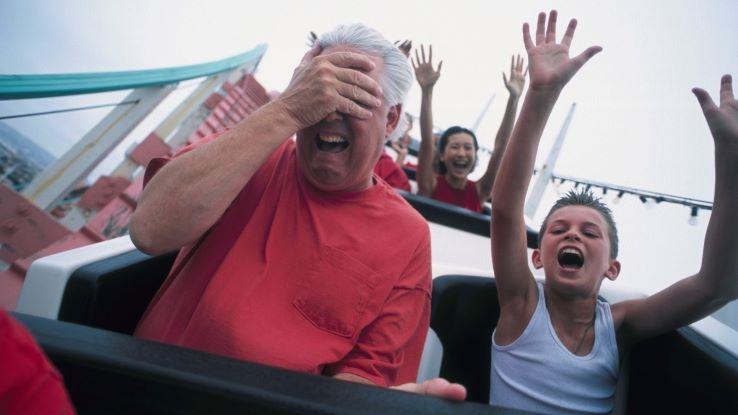
Our ancestors evolved this response so that they wouldn’t touch or consume things that could make them ill or otherwise harm them — things like bacteria-laden water, dead animals, rotting food and other types of waste. That same disgust response drives many people to reflexively want to remove large blemishes from their own skin and others’.
So, the disgust response may be a biological safety mechanism to keep you safe, but many people don’t just need disgust — they also enjoy it. In an article for Shape, psychology professor Clark McCauley, PhD, also likened it to the fear response that people have for roller coasters, saying, “You feel fear even though you’re safe.” But why do we seek out that safety-tempered fear by searching for videos about pimple popping online?
As small primates, we also have a natural tendency to want to learn about what’s around us — and that includes things that are scary or disgusting. We want opportunities to learn about what we find off-putting because it can prepare us for fear we might feel. It’s the same reason why, when someone tells us something smells terrible, we want to take a whiff and find out for ourselves what the smell is really like. Watching pimple popping videos satisfies our need to get familiar with fear, but in a safe, controlled environment so we can understand and prepare for the ways we’ll react to future fear-inducing scenarios.
It Lets Us Feel Some Control
Aside from satisfying some fear-based curiosity you might have, the action itself of popping a pimple also gives you the sense of being more in control of something otherwise out of your control. When you pop a pimple, it gives you the feeling that you’re treating yourself, ridding your body of something that shouldn’t be there.
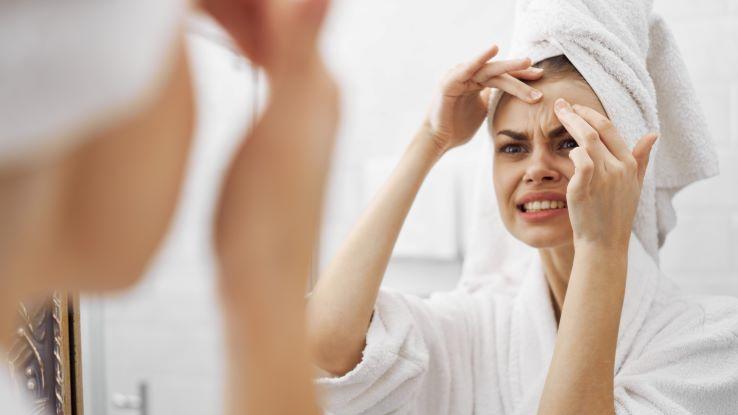
According to Marc LaFrance, associate professor of sociology at Concordia University, popping can actually feel empowering. Popping pimples “allows for the momentary and fleeting experience of having some control over a phenomenon that you didn’t choose and that you’re going to have a lot of trouble eradicating” — or that you perceive you’ll have trouble eradicating. And when you feel like you might have difficulty with something, the outcome feels out of your control — but popping pimples helps you control things, namely the blemishes that appear on your face.
Watching others pop pimples activates similar feelings of control, especially when you see someone take control and vanquish a blemish; there’s a rewarding end result. It’s also an effective way to test out the mind-body connection as you challenge yourself to see how much you can watch before looking away — again, in a controlled environment where you have the option to stop watching if things get too overwhelming. You have control over how much you choose to view, and that can feel reassuring.
It Provides a Natural Dose of Dopamine
As it turns out, watching pimple popping videos isn’t all that dissimilar to riding roller coasters or watching scary movies, Dr. Lee told Refinery29, saying, “You get a rush of euphoria and excitement.” That’s largely due to the buildup of pressure and anticipation about what’s going to happen when a pimple gets popped or a cyst gets emptied, followed by release and relief when you finally see the results.
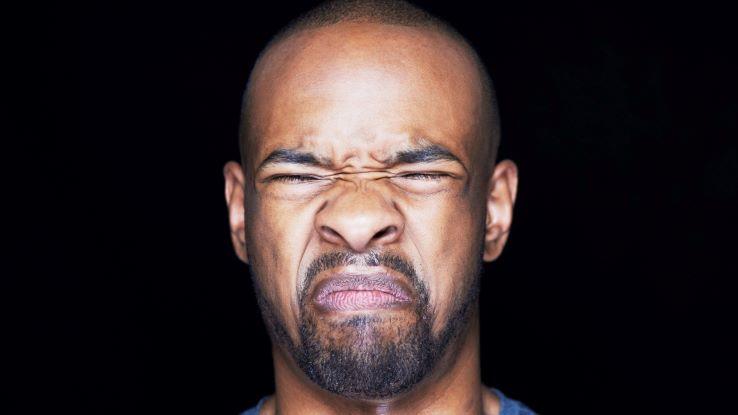
When you pop your own pimples, your brain releases the neurotransmitter dopamine — also known as one of the “feel good” chemicals your brain creates naturally. That same release can occur when you’re watching pimple popping videos. Your brain also releases dopamine when you engage in other activities tied to your natural reward system, including eating foods that you crave or having sex. It’s a chemical that plays a huge role in your ability to feel pleasure, think, plan and take an interest in things. In essence, popping pimples (or seeing them get popped) makes us happy in its own strange way.
Voyeurism Is Part of the Human Condition
The same impulse that drives you to snoop through people’s social media feeds or watch baby animals at the zoo via webcams drives some people to watch pimple popping videos. Although voyeurism — an interest in observing unsuspecting people or things — commonly is thought of in relation to sexual impulses, it goes beyond the bedroom. Indulging in a little voyeurism when it comes to popping blemishes gives you satisfaction without risking the potentially damaging effects to your skin.
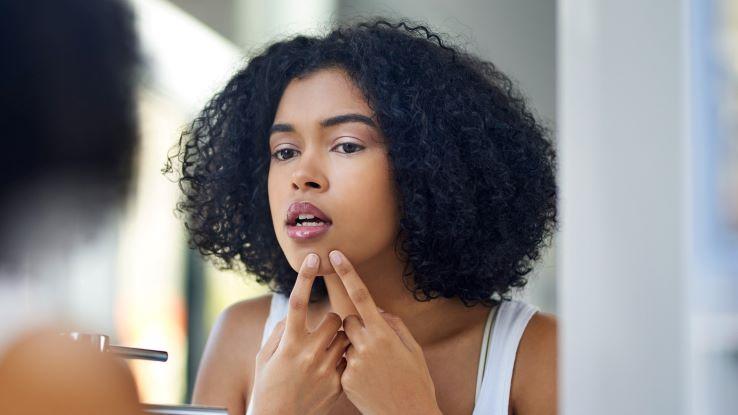
Dermatologists warn that people should avoid popping pimples because it can lead to skin injuries, infections and possible scarring. The American Academy of Dermatology Association also recommends that, if you really need to have a pimple popped because it’s painful or deep, you should have a dermatologist perform an extraction. To avoid putting your own skin at risk, stick to watching someone else do it. You’re participating without any possibility of injury, which means no guilt and no scars — just the pleasure of reveling in the odd glory of pimple popping.
Resource Links:
https://www.livescience.com/61470-pimple-popping-videos-explained.html
https://www.refinery29.com/en-us/2016/06/112919/pimple-popping-psychology
https://www.shape.com/lifestyle/mind-and-body/theres-reason-why-we-click-gross-stuff-internet
https://www.bbc.co.uk/bitesize/articles/zjx4rj6
https://www.aad.org/public/diseases/acne/skin-care/popping
https://www.ncbi.nlm.nih.gov/pmc/articles/PMC2958859/
https://www.menshealth.com/health/a25949460/reasons-why-people-like-pimple-popping-psychology/





